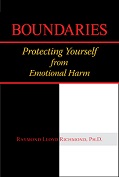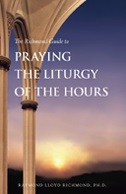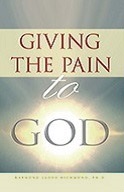|
|
|

You write about evil,
demons, and deliverance prayer on your website, so how can it be determined if someone is
actually possessed? Also, if someone is possessed, is that person morally culpable for sins
committed? What can be done about this?
 irst of all, possession can be of two
natures. irst of all, possession can be of two
natures.
Controlled by a Demon
One nature of possession is that a demon can
control a person like a robot; an extreme example of this was dramatically depicted in the
movie The Exorcist.
Now, the only way to tell conclusively
if someone is possessed is for a priest exorcist to pray over the person. If there are
manifestations, then possession can be certain. These manifestations can range from behaviors
such as glaring hatred in the eyes, coughing, screaming, kicking, and vomiting, and all the
way to extreme behaviors, such as levitations, superhuman strength, or a demon speaking through
the person.
If there are no manifestations in response to the
exorcist’s first prayers, then all that can be said is that the person currently shows no
signs of possession. But, because demons can hide themselves silently
from outward detection, it is impossible for anyone, even an exorcist, to say conclusively that a
person is not
possessed.[1] Consequently,
only with persistent intense exorcism prayers over the course of several sessions will a hidden demon
manifest itself.
Note that the reason for such a possession may not
be clearly apparent. Sometimes possession can occur because of someone “dabbling” with demonic
spirituality, sometimes it can occur because of family influence, and it may even occur in a person
who has been living a morally upright life. Nevertheless, someone possessed and controlled by a demon
is not culpable for any sins committed, simply because the person is behaving unwillingly as a puppet
of a demon.
Parasitism
Alternatively, a demon can “possess” a person by
living in the person as a parasite but not controlling the person’s behavior. In this case,
a demon will use normal events in the person’s life as opportunities to “dangle” sinful temptations
in front of the person. The demon cannot make the person commit sin, but the desire for sinful
pleasure that the person holds in his or her heart will be the weakness that drives the person to
succumb to the temptation and choose to commit sin. Granted, the temptations themselves are normal
human temptations, but, in the case of demonic parasitism, the persistence and intensity of the
temptations result from the continuous internal influence of the demon.
This sort of possession is the result of a morally
corrupt lifestyle that not only invites demons to enter but also “feeds” them with a desire for
the pleasures of sin. In this case, such a person would be morally culpable for
any sins committed as a result of consenting to the parasitic demonic influence.
|
A demon living in a
person but not controlling the person’s behavior is actually an inverted reflection
of Saint Paul’s experience. In Galatians 2:20, Saint Paul said, “I live, yet not I, but
Christ lives in me.” That is, when we choose to live a holy lifestyle and welcome Christ,
He lives in us, and our love for Him protects us from sin. But if we choose to live a
sinful lifestyle, we welcome demons, and they can live in us. |
|
Deliverance
The Universal Remedy
If a person complains of troubling and repeated
spiritual symptoms and sins, it will be necessary for the troubled person to take up a lifestyle
of heartfelt contrition, serious penance,
persistent prayer for the courage to renounce evil, constant monitoring and rejection of disordered
thoughts and fantasies, and avoidance of (that is, fasting from) all behaviors that are openings to
demonic influence: anger,
lust, immodesty,
pornography,
entertainment,
sports,
alcohol intoxication,
recreational drugs,
tobacco and nicotine, and
gluttony. When a person lives such a “boring” life,
the demons will be starved of the disorders they feed upon and will leave the person of their
own will.
Options for When The Remedy Seems “Too
Difficult”
1. |
If a person complaining of troubling spiritual
symptoms and sins finds it extremely difficult to follow the remedy described above, a
priest exorcist (if one can be found) could be consulted. If the priest exorcist finds that
no signs of a controlling possession are apparent, then Option 2 should be be
considered. |
|
2. |
A Catholic
psychologist can be consulted to find and resolve the unconscious psychological conflicts
that lie behind the symptoms. For example, because of childhood trauma from
family dysfunction or abuse, a child can resort to the
dysfunctional defenses of anger and self-hatred which open the child to demonic influence.
Finding and healing unconscious psychological conflicts can help to remove the resistance to
following the remedy described above. |
|
Conclusion
Renouncing demonic influence can be very
difficult, and resistance to letting go of sin can be intense. Still, all the sins
that are committed with moral culpability must be repented and
confessed, sincere penance
must be undertaken, and the person must endeavor to live a
holy lifestyle to close openings to spiritual doom.

Notes
1. These are called abditi or “hidden demons.”
See Interview With An Exorcist, p. 78.


Healing
|
Though
Demons
Gloat
|
Anger
&
Forgiveness
|
Falling
Families,
Fallen Children
|
Disasters
and
trauma
|
Psychology
from the
Heart
|
 |
 |
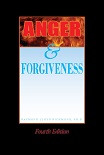 |
 |
 |
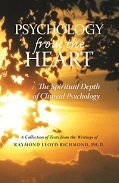 |
Psychological Healing
in the Catholic Mystic tradition |
True Christian
Identity
In Confronting
Evil |
How to Turn the
Emotional Wounds
of Daily Life Into
Psychological Growth. |
The Psychological
and
Spiritual Remedy
For Our Cultural
Disintegration |
The Struggle For
Psychological
and Spiritual
Growth |
Collected Texts
About the Spiritual Depth of
Clinical Psychology |
More information |
More information |
More information |
More information |
More information |
More information |
Desire
and
Distraction
|
Fear
|
Stopping
Smoking
|
Borderline
Personality
Disorder
|
Catholic
Compassion
|
Reverence
for the
Holy Eucharist
|
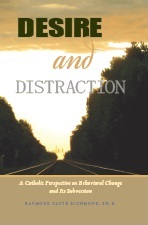 |
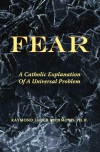 |
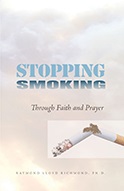 |
 |
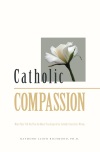 |
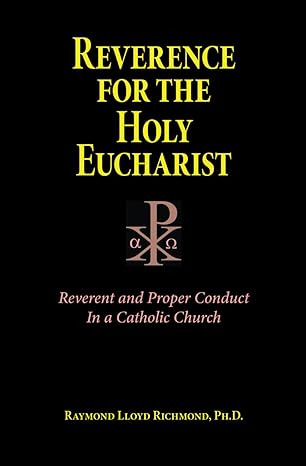 |
A Catholic Perspective
On Behavioral Change
and Its Subversion |
A Catholic Explanation
Of a Universal
Problem |
Through
Faith
and
Prayer |
Healing
the
Rage |
When They Tell You
That the Moral Teachings of the
Catholic Church
Are Wrong |
Reverent and
Proper Conduct in
a Catholic Church |
More information |
More information |
More information |
More information |
More information |
More information |
|











